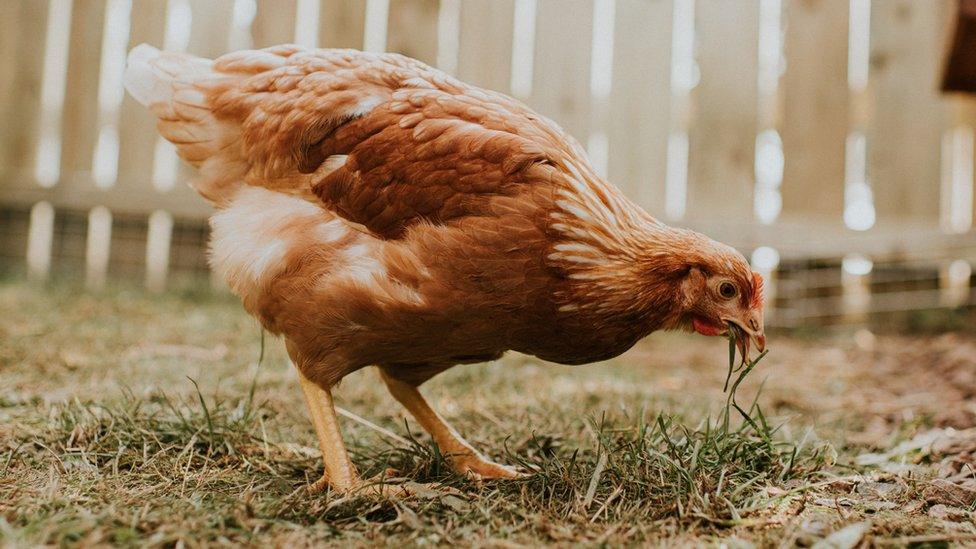Bird flu: Housing order introduced as cases confirmed in wild birds in NI
- Published
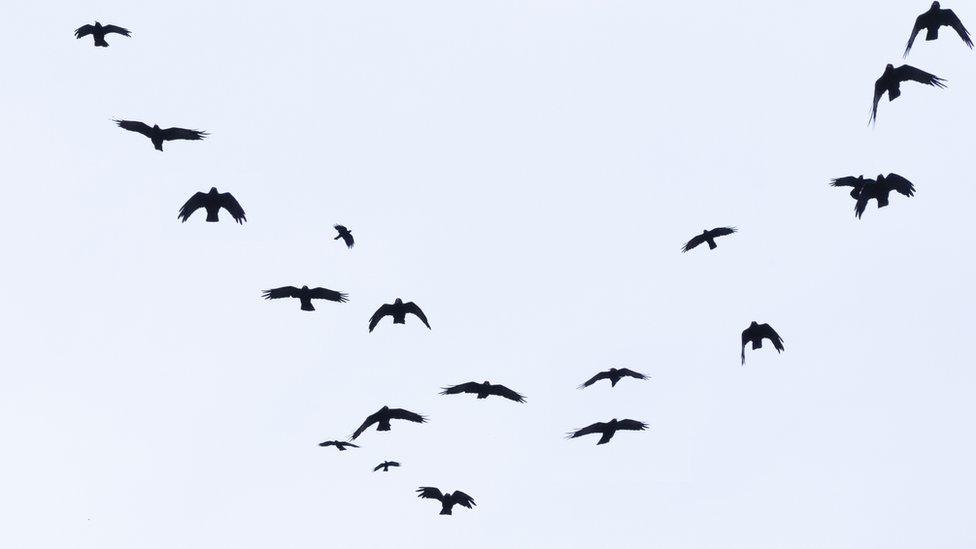
The H5N1 virus was confirmed in two wild birds retrieved in Belfast
Avian influenza has been confirmed in two wild birds retrieved from Belfast Waterworks earlier in the week.
In response the agriculture minister has announced new bird housing measures as part of the Avian Influenza Prevention Zone (AIPZ).
Several cases of the H5N1 virus have been confirmed across the UK and Republic of Ireland in recent days.
On Monday, avian influenza was confirmed in a commercial turkey flock in County Monaghan.
Disease control zones have been put in place around all infected premises to "mitigate against onward disease spread", said the Department for Agriculture, Environment and Rural Affairs (Daera).
The housing order, which comes into force from 29 November, will make it a legal requirement for all poultry and captive bird keepers to keep their birds housed or otherwise separate from wild birds.
The restrictions apply to everyone, from hobby flock owners to commercial farmers.
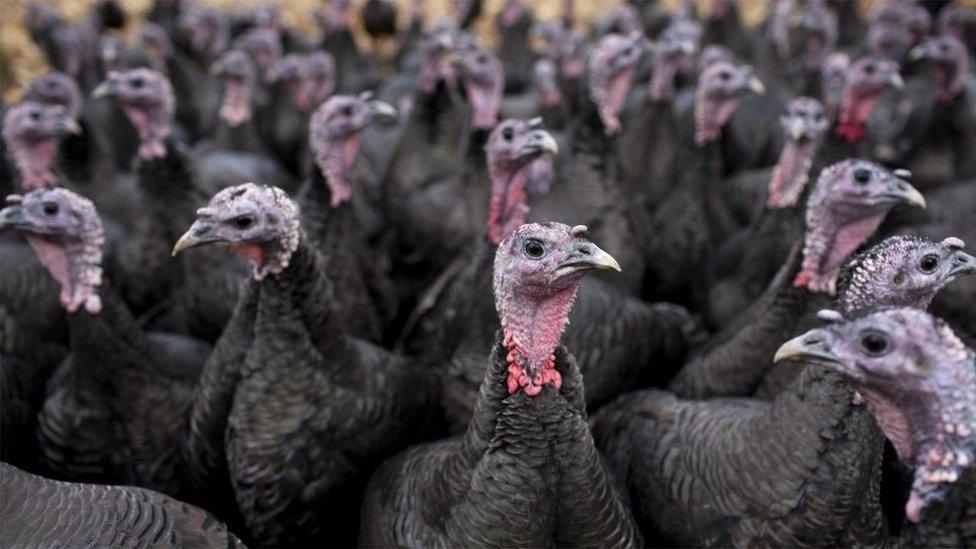
Two cases of avian influenza were discovered among a flock of commercial turkeys in County Monaghan
Agriculture Minister Edwin Poots said he took the decision "in order to try to prevent an incursion of avian influenza into the poultry flock in Northern Ireland".
"This decision was based on sound expert advice and in consultation with industry," he said.
The strain of avian influenza (H5N1) is described as "highly pathogenic", as it is often fatal to birds that catch it.
In Ireland, the government has already ordered all bird keepers to house their flocks.
Speaking on Monday, before any cases had been confirmed in Northern Ireland, chief vet Robert Huey said it could pose a "serious threat" to the poultry industry.
"If we were to confirm avian influenza in Northern Ireland it would have quite a devastating effect economically on that industry, as well as on the farming families and those people dealing with the disease," he told the BBC's Good Morning Ulster.
Mr Huey said there was no evidence that the disease can infect humans.
"This is a bird disease, this particular strain really just stays in poultry," said the chief vet.
"Although we take protection measures whenever people are dealing with an outbreak, so far it hasn't shown any inclination to affect humans at all."
Related topics
- Published14 November 2021
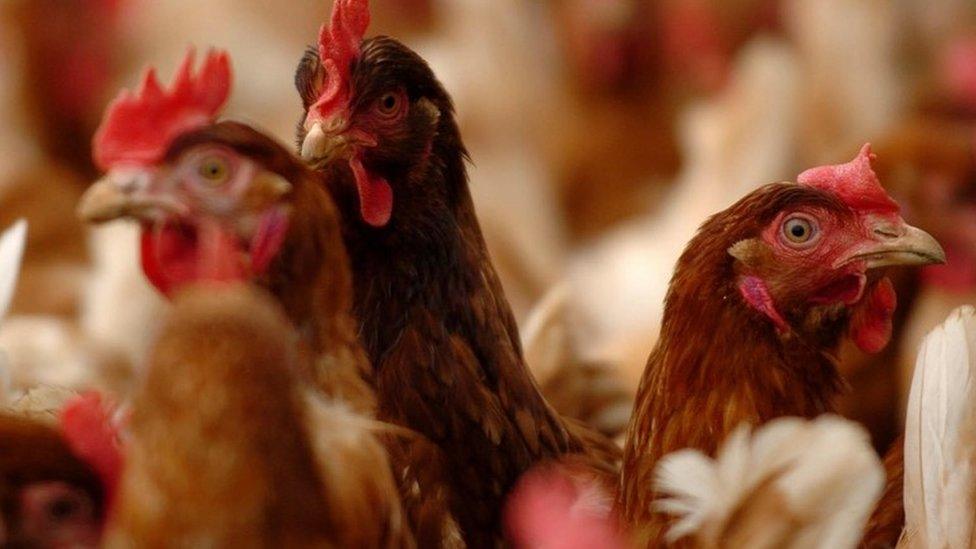
- Published22 November 2021
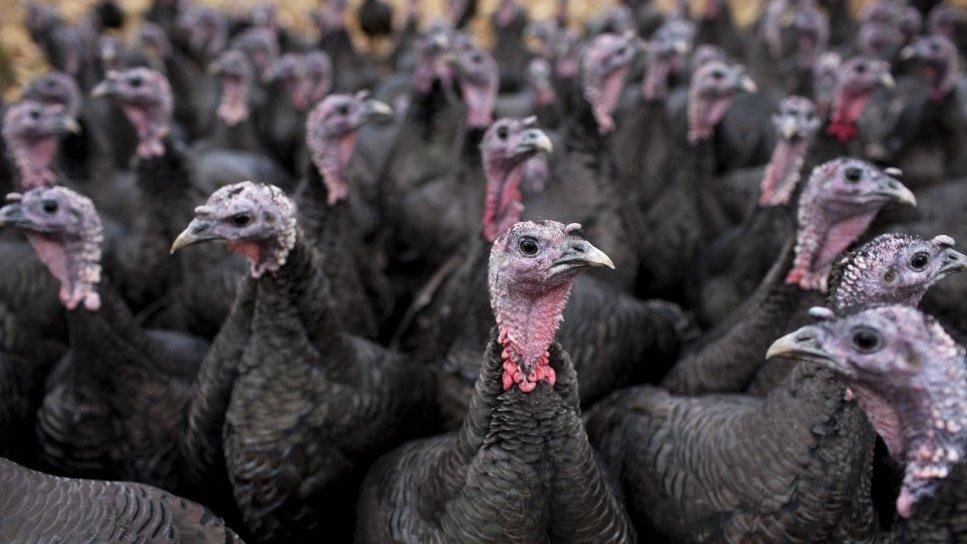
- Published21 November 2021
